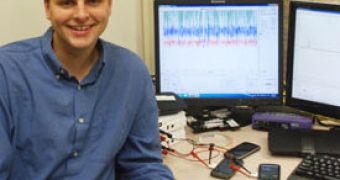Although Wi-Fi is one of the most popular data transfer technology, it is also the most power hungry.
However, this is about to change as Justin Manweiler, graduate student in computer science, under the direction of Romit Roy Choudhury, assistant professor of electrical and computer engineering at Duke’s Pratt School of Engineering, has just found ways to make the Wi-Fi technology less energy demanding.
It appears that the battery of mobile devices, including smartphones and laptops, is draining faster when the Wi-Fi connection activates in the presence of other Wi-Fi devices in the neighborhood.
The reason behind this issue is the fact that each device has to stay active before it gets its turn to download a small piece of its desired information.
This means that the battery drainage is far higher when downloading something from locations where the number of Wi-Fi devices in the neighborhood is higher.
Fortunately, Justin Manweiler developed a software that eliminates this problem by allowing mobile devices to sleep while a neighboring device is downloading information.
This will save energy for the sleeping devices, but also for the active device which no longer needs to compete with other devices.
The new system was labeled 'SleepWell' by its developer and demoed at MobiSys (9th Association for Computing Machinery’s International Conference on Mobile Systems, Applications and Services).
Manweiler described the system by analogy, “Big cities face heavy rush hours as workers come and leave their jobs at similar times. If work schedules were more flexible, different companies could stagger their office hours to reduce the rush. With less of a rush, there would be more free time for all, and yet, the total number of working hours would remain the same.”
According to Manweiler, the testing conducted across a number of device types and situations proved that the SleepWell system is a viable solution for the near future.

 14 DAY TRIAL //
14 DAY TRIAL //